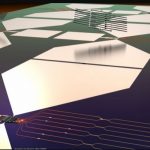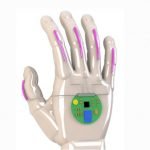Scientists find new way to speed heart failure diagnosis and treatment
In a new study, researchers found when people seek emergency care for shortness of breath, a routine electrocardiogram (ECG or EKG) enhanced by artificial...
Scientists make quantum sensors smaller
Sensing devices have a huge number of industrial uses, from carrying out ground surveys to monitoring volcanoes.
Scientists working on ways to improve the capabilities...
New way to make scalable quantum processors
An Army funded project marks a turning point in the field of scalable quantum processors, producing the largest quantum chip of its type using...
What does the future of artificial intelligence mean for humans? Do humans dream of...
From the species that brought you the moon landing and the hot dog eating contest, artificial intelligence is here to change the world.
The first...
How a few negative online reviews early on can hurt a restaurant
A new study shows that early online restaurant reviews can affect how many reviews -- and how high of a rating -- restaurants receive...
New OLEDs speed up organic data transfer
Researchers are pushing the boundaries of data speed with a brand-new type of organic LEDs.
An international research team, involving Newcastle University experts, developed visible...
AI could prevent vision loss in people with diabetes
In a new study, researchers found that artificial intelligence (AI) can accurately detect serious eye disease among those with diabetes (retinopathy) and could halve...
New quantum breakthrough could offer new direction for communication tech
Quantum communication has the potential to become the ultimate secure communication channel.
Not only is it nearly impossible to eavesdrop on quantum communication, but those...
Ad blockers may benefit websites, users, and the market at large
Contrary to common assumptions, ad blockers may offer some benefits to companies, users, and the market at large.
Millions of websites, including some of the...
This wearable-tech glove could translate sign language into speech in real time
The wearable device is inexpensive, flexible and highly durable, UCLA bioengineers say.
UCLA bioengineers have designed a glove-like device that can translate American Sign Language...










